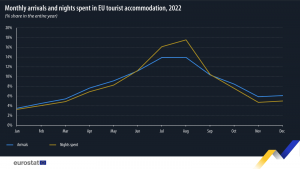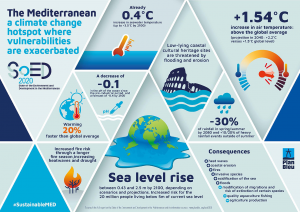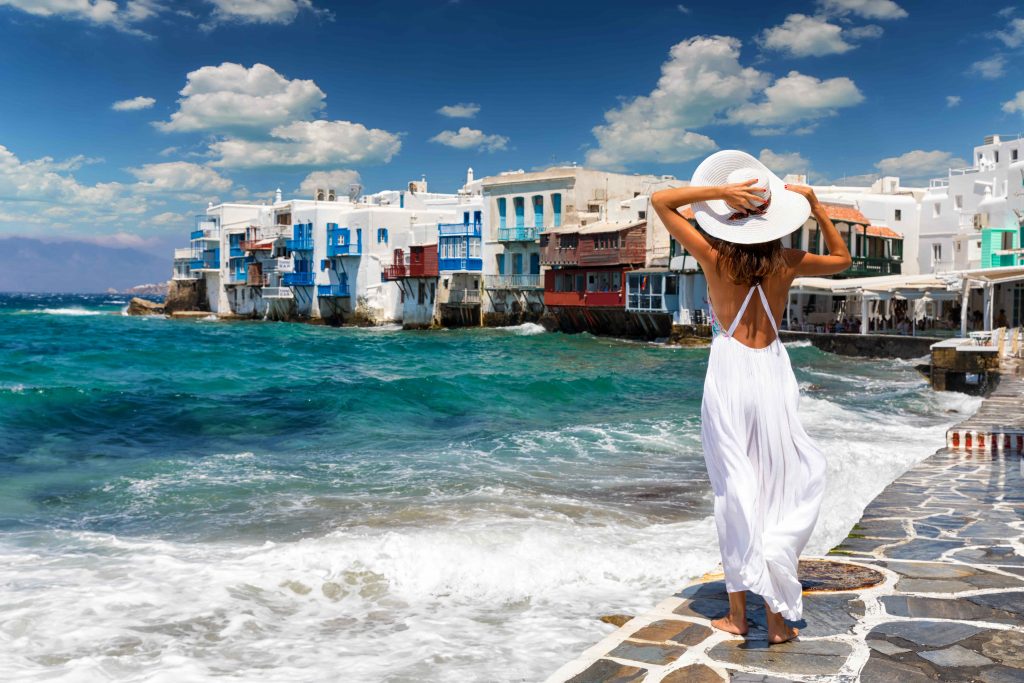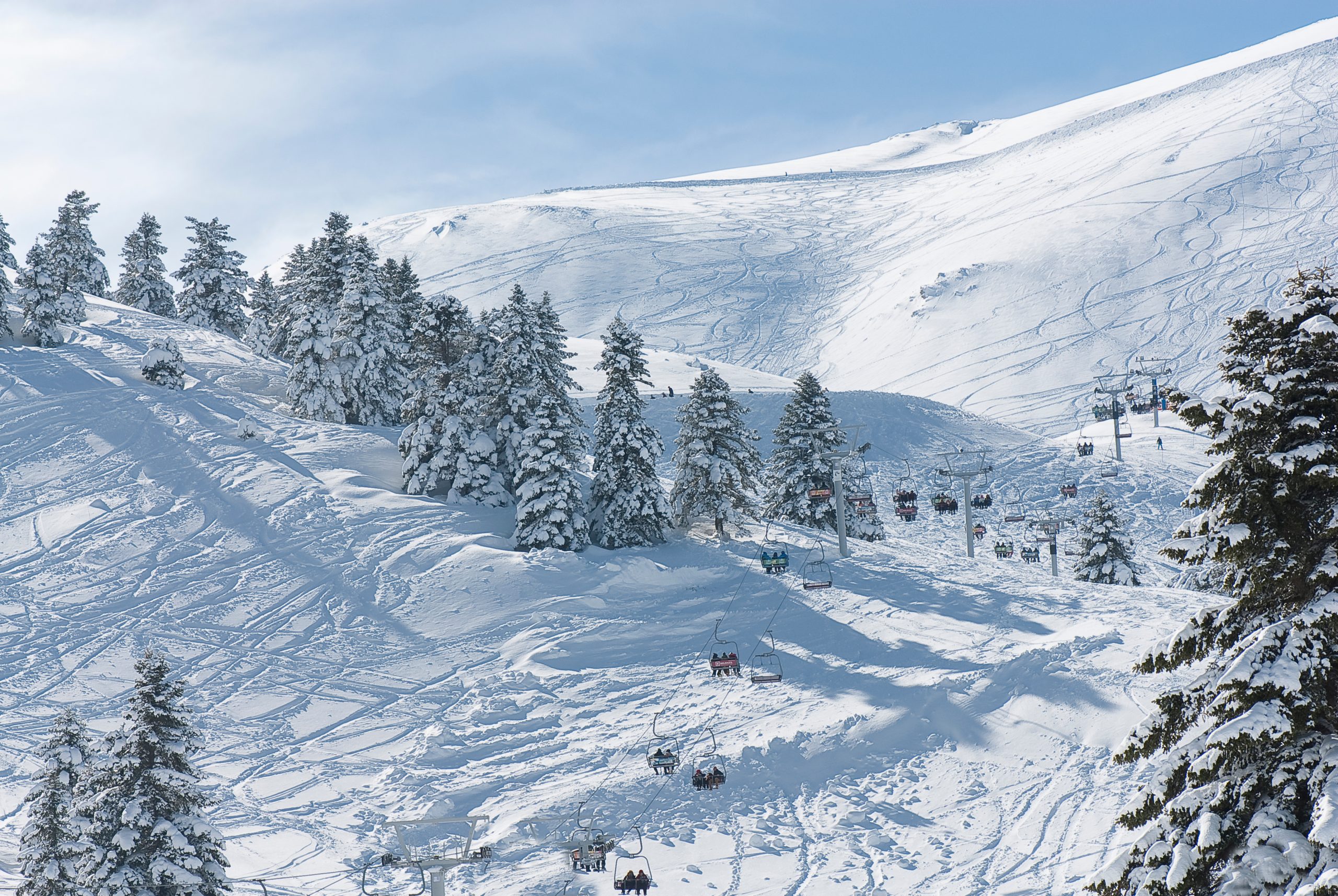Still heavily reliant on a ‘sun & beach’ tourism model, Greece has not prioritized the development of its ‘winter tourism’ industry for foreigners. However, the impact of climate change and increasing demands for sustainable tourism may present Greece with opportunities to attract tourists outside of the summer months who are interested in a winter tourism that goes beyond ski and snow.
Winter Tourism in Greece
Historically, winter tourism in Greece is driven by the domestic market, as Greeks seek out Christmas holidays and ski and snow excursions. This year will be no exception, with occupancy rates over the holidays expected to come in at around 90% in Greece’s winter destinations. Demand will drop off sharply, though, as soon as the school break is over.
Intense fluctuations in occupancy rates and a short winter season are problematic for winter destinations. In a self-fulfilling cycle, they lead to insufficient investment and an offering some industry experts consider below the level necessary to attract foreign tourists en masse.
However, the tourism market’s growing focus on sustainability on both the demand and supply side, the impact of climate change, and new concepts related to winter tourism may provide the impetus Greece needs to develop its winter season more strategically to attract foreign visitors.
The Challenge for Greece and Europe
The existing tourism model contributes almost 20% to GDP, and according to recent statements by Minister of Tourism Olga Kefalogianni, it has largely focused on sun & beach, boating, cultural and religious tourism, city breaks and MICE tourism. Kefalogianni says the time has come for Greece to promote the sustainability of destinations and to diversify and improve the competitiveness of its tourism through a multi-thematic product that will attract tourists year-round and to all of Greece’s regions.
The prevalence of highly-seasonal sun & beach tourism is also a problem for the EU to tackle. The European Union reported a few weeks ago that 34% of all tourism in the bloc occurs over just two months: July and August.

Moreover, 15 coastal regions in Greece, Bulgaria, France, Croatia, Italy Romania and Sweden post 50% of their tourist occupancy during those months.
In many coastal destinations in Europe and Greece, high seasonality has been criticized for leading to exorbitant accommodation prices, overcrowding, a loss of ‘authenticity’ and quality, and the degradation of coastal ecosystems, which has led to a backlash from locals and tourists alike. And while Greece and other EU coastal countries have flirted with the idea of decoupling from the seasonal Sun & Beach model for years, it has only become a political imperative now that the impact of climate change is felt so acutely over the summer months.
On the heels of high temperatures and devastating forest fires and floods—which cost Greece 500,000 visitors and 300 million euros less in receipts, according to a Bank of Greece Business Trends report, all 27 EU Ministers of Tourism gathered in Palma to discuss the issues and how to make EU tourism sustainable. They signed the Palma Declaration on “The path toward social sustainability of tourism in the EU” in an effort, too, to highlight the importance of the issue ahead of the upcoming EU Parliamentary elections.
Tourism Leaders Weigh in on Climate Change and Sustainability
Within Greece, the tourism industry seems to have appreciated the urgency of the situation. Reflecting on the floods, wildfires and other natural disasters that occurred across Europe, President of the Hellenic Chamber of Hotels and HOTREC Alexandros Vassilikos recently commented that “The vulnerability of the European tourism industry to climate change is undeniable. The sector is committed to act—and act fast—to implement sustainable practices.”
Arguably, the Greek Tourism Confederation (SETE) has been highlighting the “need to change the tourism status quo” for a while, and in 2021 proposed a “National Strategy for Tourism 2030” which clearly notes the imperative to move beyond the existing Greek tourism model to incorporate agrotourism, ecotourism, athletic tourism, gastronomy, and family & friend breaks. Highlighting that 2023 will be a banner year for Greek tourism, SETE President Yiannis Paraschis recently said that the transition will require new infrastructure, investments and competitiveness, proper destination management, labor market upgrades, and a focus on sustainability.
Achieving such a major transition to a less seasonal and more sustainable tourism model will require a clear strategy, political will and stakeholder alignment, but also tremendous resources. Kefalogianni has noted that Greece’s tourism sector will receive 387 million euros from the Recovery and Resilience Fund, which could be a powerful tool if carefully implemented to support the transition of both large and small family-run hotels along with the upgrading of strategic infrastructure.
The Impetus for a New ‘Winter Tourism’
Equally important, there is a need to reconceptualize winter tourism in light of climate change, not only in Greece but throughout Europe. The United Nations Environment Program notes that the Mediterranean is warming 20% faster than the rest of the world, with higher temperatures and up to 30% less precipitation expected. These trends, which are projected to lead to hot dry summers but milder temperature during the rest of the year, will be important for the promotion of tourism outside the summer months and of a version of winter tourism that does not rely on snow.

Considering that 80% of the world’s ski resorts are located in Europe and are expected to be highly impacted by climate change, it is a serious issue for Europe to begin tackling. Specifically, a quarter of ski resorts are at risk for snow scarcity and even snowmaking may not be a solution, due to anticipated decreases in precipitation. Experts note that where snowmaking is an option, it is questionable whether or not the resource-intensive process is compatible with countries’ efforts to reduce emissions and move to sustainable tourism models.
Hopes for Winter 2024
On a positive note and in relation to this year’s winter season, Athens airport traffic was up 21.1% this November compared to last year, and better roads have made many mountain destinations more accessible. Market reports show that Greeks will this year be traveling beyond the well- known destinations of Arachova, Metsovo, Ioannina, Karpensi, Kalavryta, Arcadia and Trikala to fill hotels and accommodation in Epirus, Zagrochoria, Tzoumerka, Xanthi, Drama and the Peloponnese.

Dikastirion square, Thessaloniki, Greece on December 9, 2023. / Πλατεία δικαστηρίων, Θεσσαλονίκη, Σάββατο 9 Δεκεμβρίου 2023.
Christmas villages and theme parks are popping up in various parts of the country to light up the faces of families over the holidays, and some even expect to attract foreign visitors. Lastly, and despite global warming, snow has already fallen in various regions and ski centers like Parnassos have announced that they will open over the holidays, in hopes that the snow will last. For the winter of 2023–2024 at least, Greece promises to do its best to offer Greeks, and a few lucky foreigners, yet another traditional ‘winter tourism’ holiday season.






